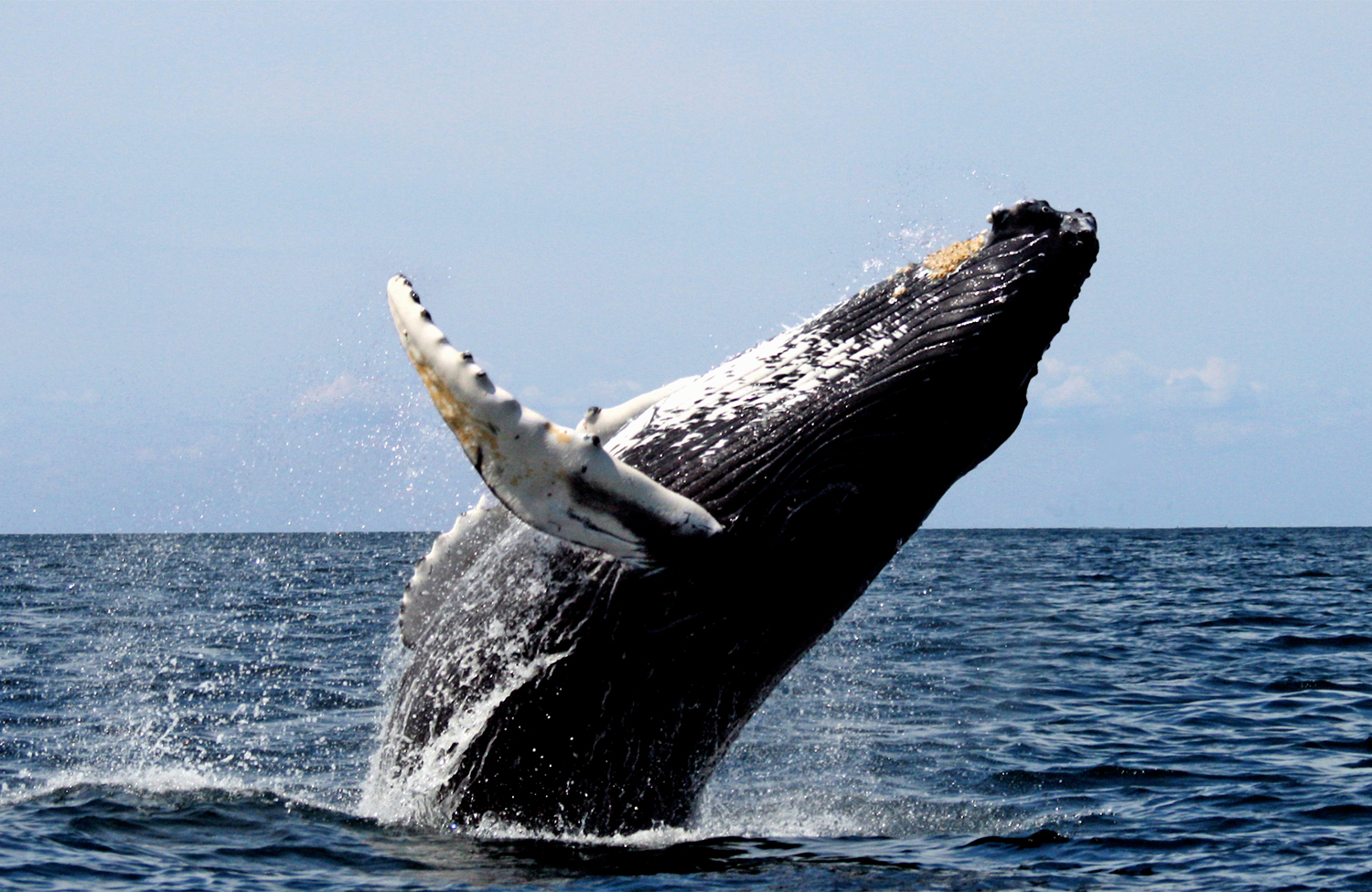

Muscat, Oct 3 - With the number of humpback whales dipping to less than 100 in Oman’s waters, there is fear the precious species is facing a threat of extinction, says an environment expert. “They might be listed on the International Union for Conservation of Nature and Natural Resources’ list of species facing such a threat,” said Andro Wilson, Field Manager of the Renaissance Whale and Dolphin Research Team, Five Oceans Environmental Services. He said the studies conducted since 2000 have revealed humpback whales in Arabian Sea are the only one of its kind that don’t migrate on annual basis between tropical and polar regions.
In an attempt to document this, the Environment Society of Oman (ESO) placed satellite tags on 14 humpback whales in 2014 to monitor their movements and understand their behaviour. It was learned, they moved along the southern coasts of Oman to the east towards the Indian Ocean before appearing again on India’s shores. Wilson said it was a big achievement to track the humpback whales in the Arabian Sea in order to understand the connection between Arabian Sea whales and the possibility of their existence in other areas. “Satellite imagery has revealed areas of high phytoplankton productivity along the west coast of India, which is a potential indicator of where prey may be found for humpback whales,” he said.
“This project helped us understand whether these kinds of whales live or habit other spots in the region. That will help us extend regional cooperation to preserve this endangered species and improve our research,” he added. Suaad al Harthiyah, from ESO, said the challenge now is to connect all results and facts obtained from satellite tags, analyse sound patterns of whales and estimate their number. “Humpback whales face risks such as overfishing, economic activities on seas and oceans, and increasing movement of ships in the Arabian Sea in the last 10 years. It is a must to protect these species with the help of both government and private agencies,” she added.
Zainab al Nassri
Oman Observer is now on the WhatsApp channel. Click here



